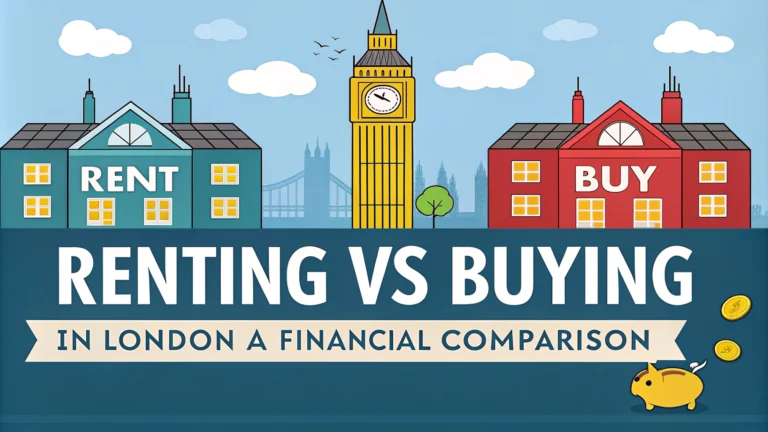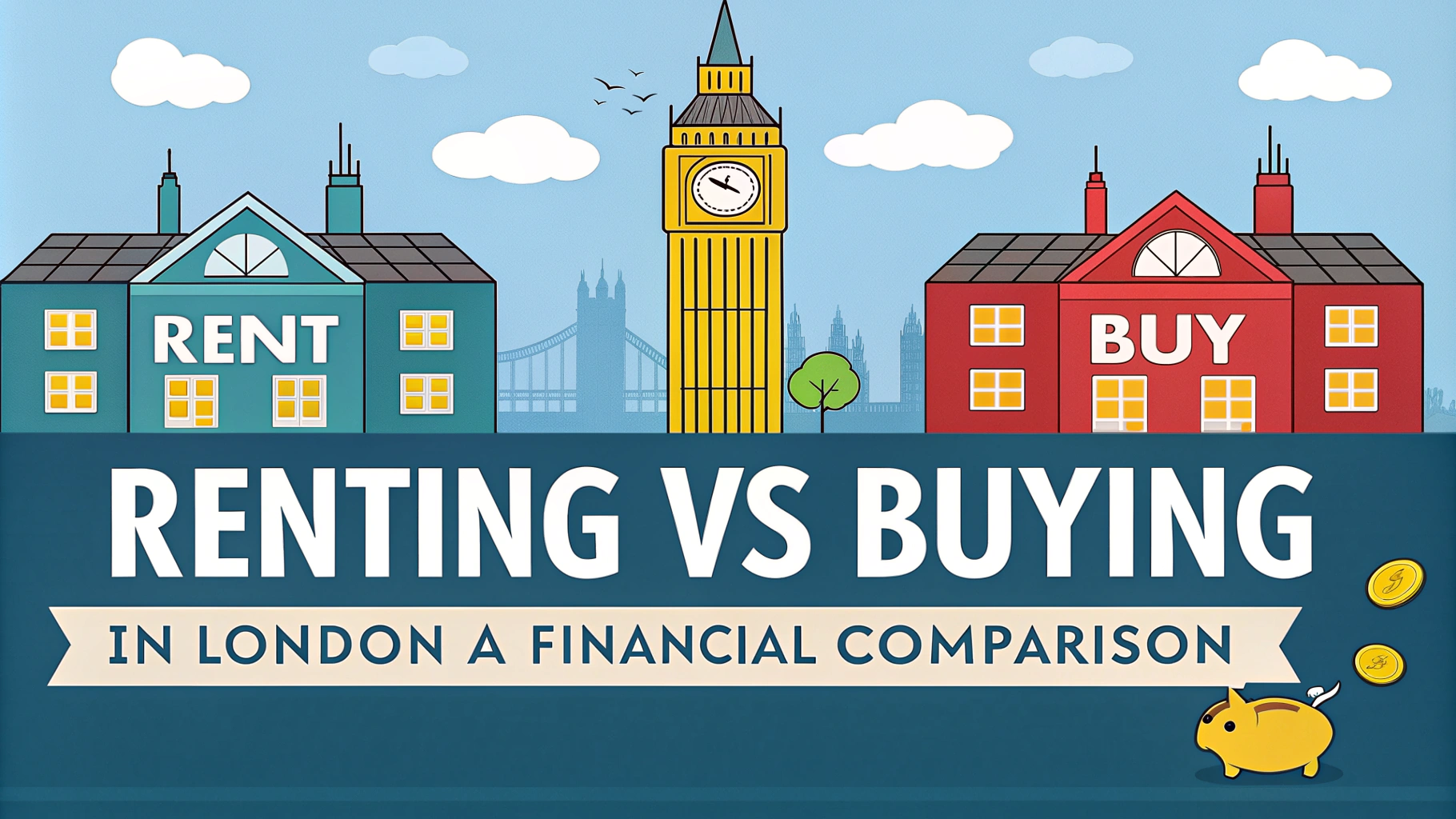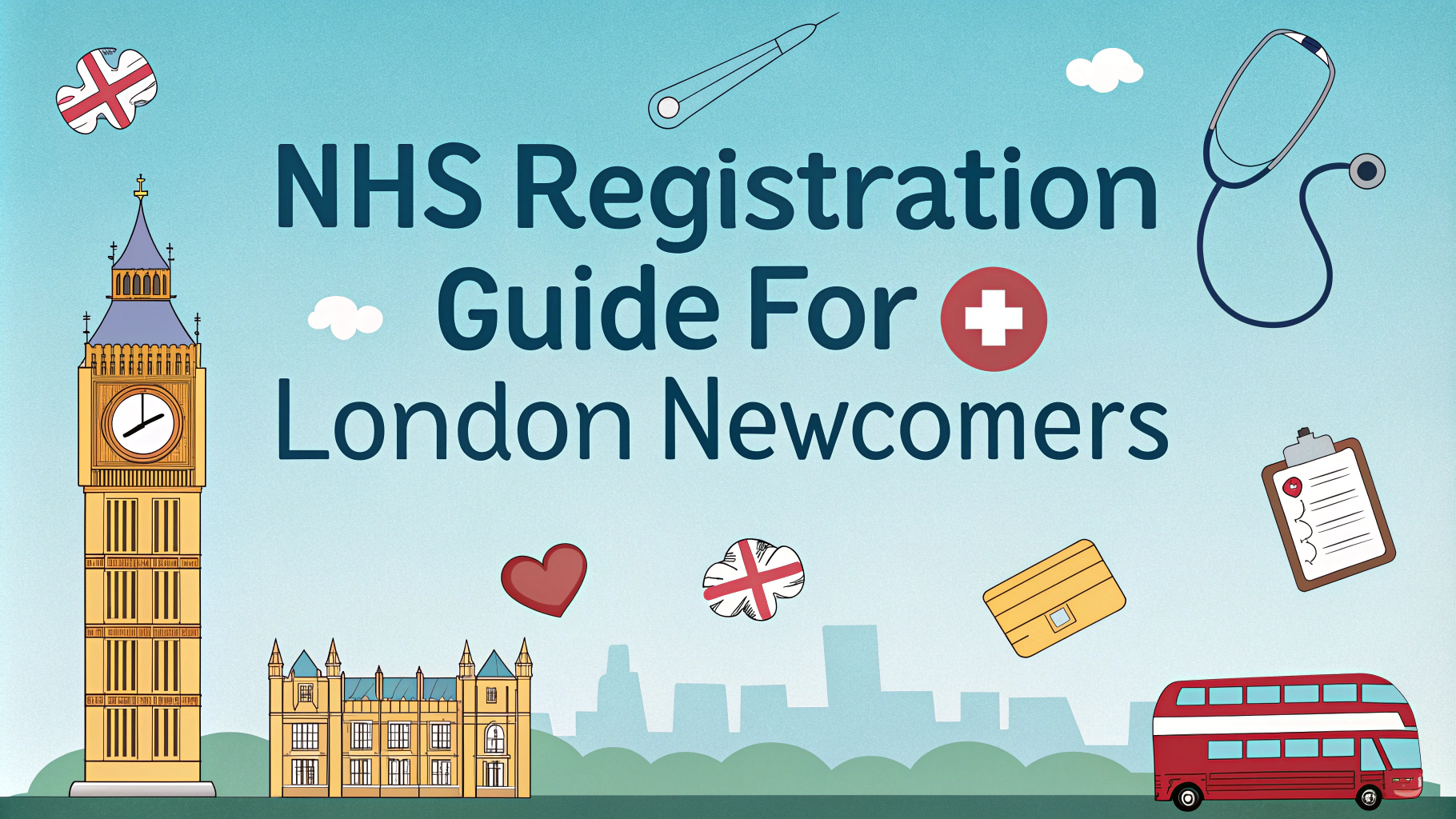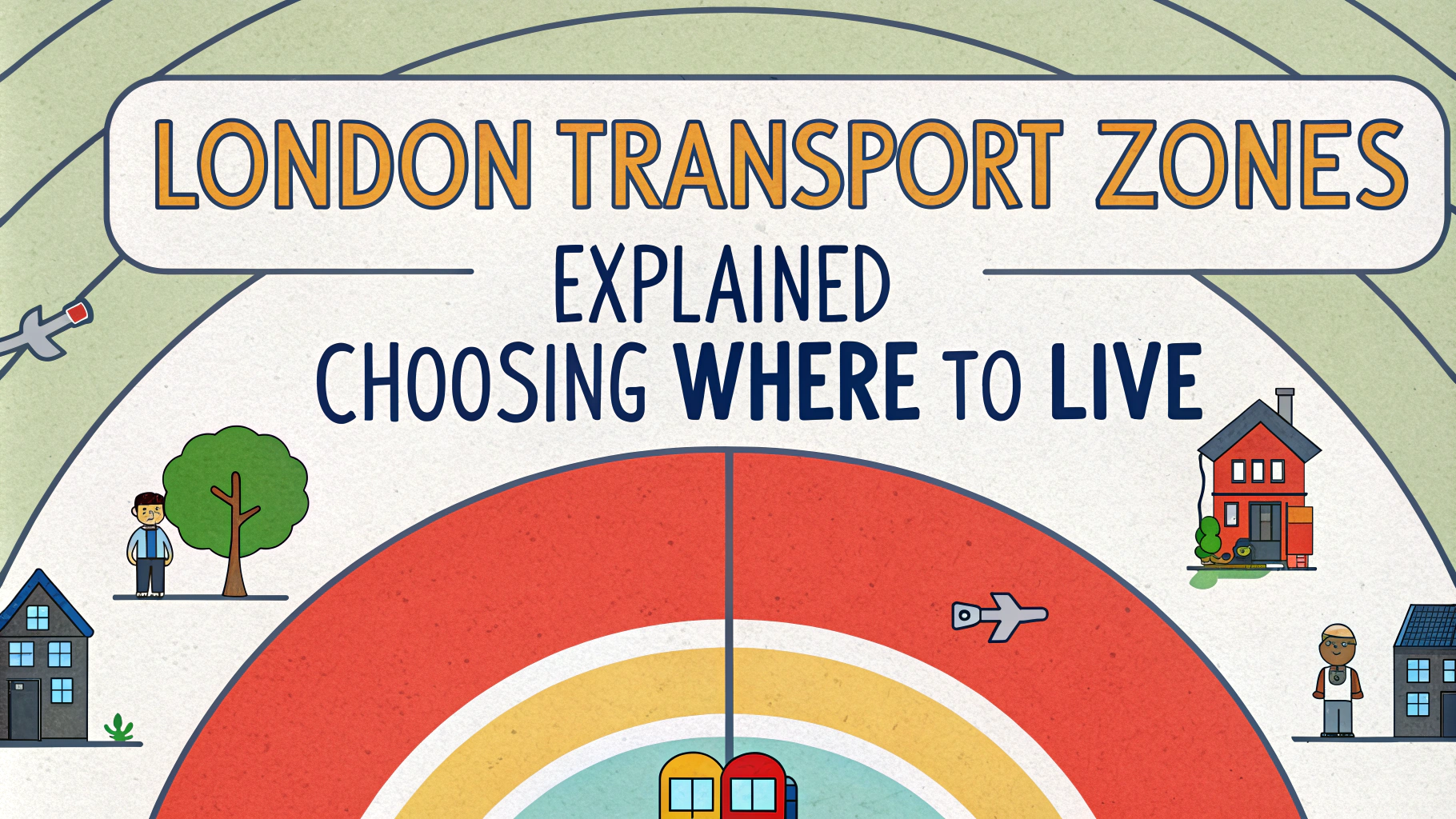London’s property market presents a complex decision between renting and buying that impacts both finances and lifestyle.
The choice depends on various factors including your financial situation, career plans, and how long you plan to stay in London.
This guide breaks down the key financial aspects of renting versus buying in London to help you make an informed decision.
Initial Costs Comparison
Renting typically requires a deposit of 5-6 weeks’ rent, plus the first month’s rent upfront.
Rental Initial Costs:
- Deposit: £2,000-£3,500 (average for London)
- First month’s rent: £1,700-£2,500
- Agency fees (now banned for tenants)
- Moving costs: £400-£800
Buying Initial Costs:
- Deposit: 10-25% of property value (£45,000-£112,500 for average London property)
- Stamp duty: £10,000-£20,000 for average property
- Legal fees: £1,500-£3,000
- Survey costs: £400-£1,500
- Moving costs: £400-£800
Monthly Cost Comparison
| Expense Type | Renting | Buying |
|---|---|---|
| Monthly Payment | £1,700-£2,500 (rent) | £1,800-£2,600 (mortgage) |
| Insurance | £10-15 (contents only) | £25-40 (buildings & contents) |
| Maintenance | £0 (landlord responsible) | £100-200 monthly average |
Long-term Financial Implications
Benefits of Buying:
- Building equity instead of paying rent
- Potential property value appreciation (London average: 5-7% annually)
- Freedom to modify property
- Fixed mortgage costs (with fixed-rate mortgage)
Benefits of Renting:
- Greater flexibility to move
- No maintenance costs or property taxes
- Lower initial costs
- No exposure to property market risks
Breaking Even Timeline
The average break-even point between renting and buying in London is typically 5-7 years, assuming standard market conditions.
Factors Affecting Break-even:
- Property price growth rate
- Interest rates
- Maintenance costs
- Rental price increases
Current Market Considerations (2023-2024)
Interest rates have risen significantly, affecting mortgage affordability and making renting more attractive in the short term.
Key Market Indicators:
- Average London property price: £450,000-£500,000
- Average monthly rent: £1,700-£2,500
- Mortgage rates: 4.5-6.5%
- Rental yield: 3-5%
Making Your Decision
Choose Buying If:
- You plan to stay in London for 5+ years
- You have a stable income and sufficient savings
- You want to build long-term equity
- You prefer having control over your living space
Choose Renting If:
- You need flexibility for career moves
- You’re new to London and exploring areas
- You don’t want to commit to property maintenance
- You prefer keeping your savings liquid
Contact a mortgage advisor or property expert for personalized advice – find registered advisors through the FCA Register.
Property Location Considerations
Prime Central London:
- Higher property appreciation potential
- Premium rental and purchase prices
- Better rental demand and yields
- Lower void periods
Outer London Boroughs:
- More space for money
- Lower entry costs
- Potential for area regeneration gains
- Better suited for families
Future Market Outlook
Expected Trends:
- Continued demand for rental properties
- Gradual property price stabilization
- Interest rate normalization by 2025
- New housing developments increasing supply
Making an Informed Property Decision
Consider your personal circumstances, financial goals, and market conditions carefully. Both renting and buying can be viable options in London’s dynamic property market.
Essential Action Steps:
- Calculate your total monthly affordability
- Research target areas thoroughly
- Build an emergency fund for either choice
- Seek professional financial advice
Remember that property decisions should align with both your immediate needs and long-term financial strategy. Regular review of your circumstances will help ensure your choice remains optimal over time.
FAQs
- What are the typical deposit requirements for renting vs buying in London?
Renting typically requires 4-6 weeks’ rent as deposit, while buying requires a minimum 5-10% deposit of the property price, with most lenders preferring 15-25% for better mortgage rates in London. - How do monthly costs compare between renting and buying in London?
Monthly rent is often higher than mortgage payments for equivalent properties, but homeowners must also factor in service charges, maintenance costs, buildings insurance, and ground rent for leasehold properties. - What are the additional costs involved in buying a property in London?
Buyers must pay stamp duty (varies by property value), solicitor fees (£1,000-£3,000), surveyor costs (£400-£1,500), mortgage arrangement fees (£1,000-£2,000), and moving costs. - How long do I need to stay in a London property for buying to become more cost-effective than renting?
Generally, 5-7 years is the break-even point where buying becomes more cost-effective than renting, accounting for transaction costs and potential property value appreciation. - What are the current average property prices versus rental rates in London?
Average London property prices are around £530,000, while average monthly rents are approximately £2,000 for a two-bedroom flat, varying significantly by location and property type. - Are there any areas in London where buying is significantly more advantageous than renting?
Areas undergoing regeneration like Woolwich, Tottenham, and parts of East London often offer better value for buyers, with potential for capital appreciation exceeding rental costs. - What are the main financial risks of buying versus renting in London?
Buying risks include property value depreciation, interest rate increases affecting mortgage payments, and unexpected maintenance costs. Renting risks include rent increases and less stability but lower financial commitment. - How does the length of the property lease affect the buying decision in London?
Leases under 80 years can significantly affect property value and mortgage availability. Extending a lease can cost tens of thousands of pounds, which should be factored into buying decisions. - What government schemes are available to help first-time buyers in London?
Help to Buy equity loans, Shared Ownership, First Homes scheme, and Lifetime ISAs are available, with London-specific higher property price thresholds for some schemes. - How do maintenance responsibilities differ between renting and buying?
Renters are typically only responsible for minor repairs and maintenance, while homeowners must cover all maintenance and repair costs, which can be substantial in London’s older properties.








